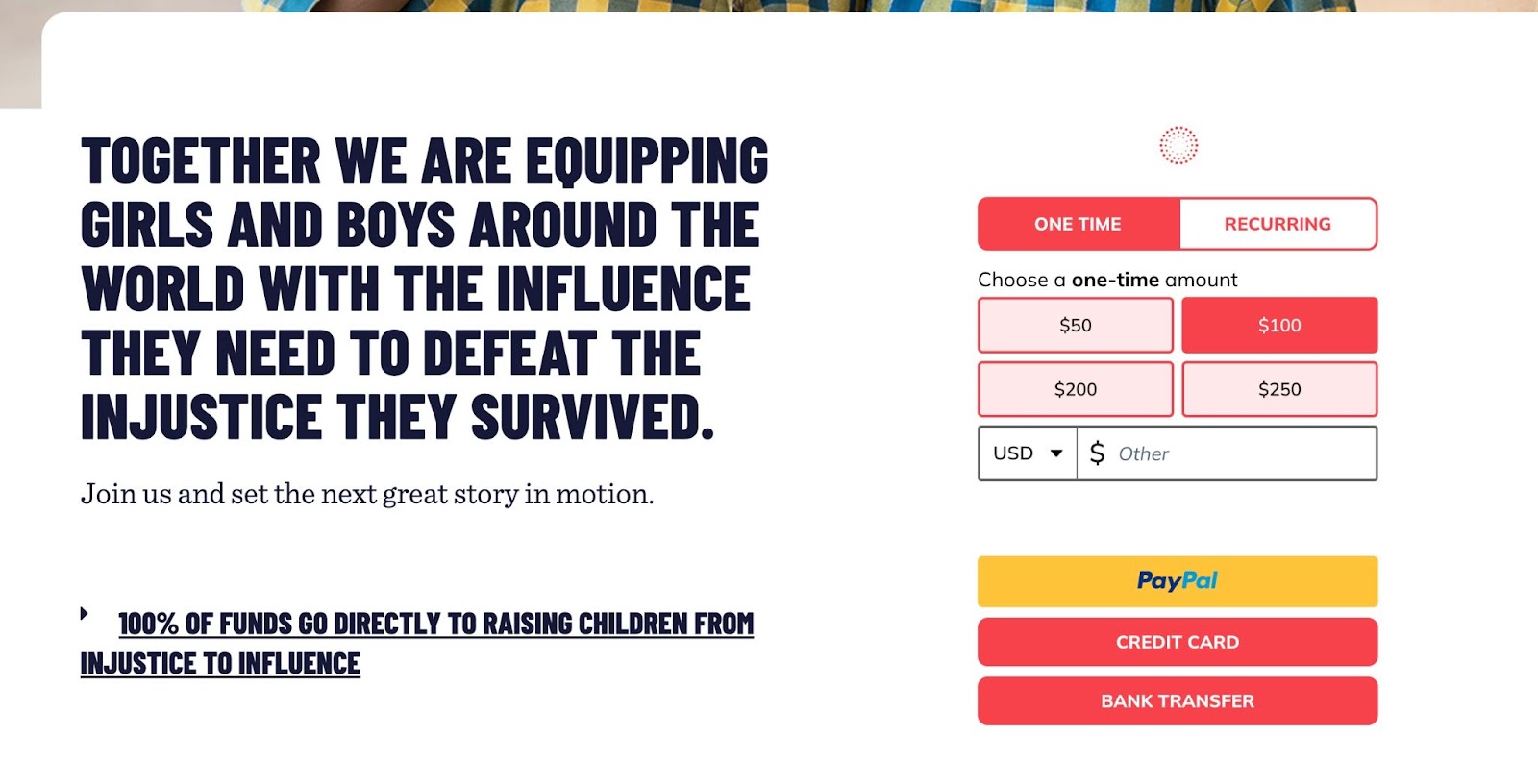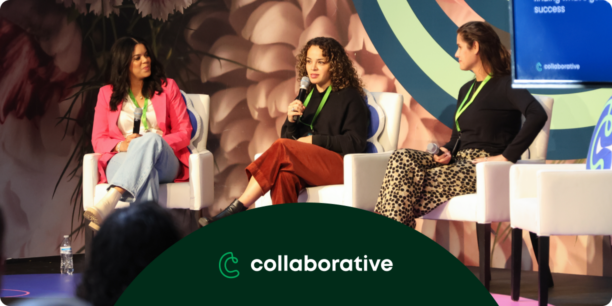How to Choose a Classy Campaign Type

Over 5,000 nonprofits choose Classy to power their online fundraising, and their next big choice is which campaign type to use for their first fundraising campaign. Below, we explore five different campaign types, their specific use cases and calls to action, and the value they can add to your fundraising portfolio.
An Overview of Fundraising Campaign Types
We’ll take a look at five different campaign types at your disposal when you use a modern fundraising platform like Classy. These include:
- Donation Pages /Donation Websites
- Crowdfunding
- Peer-to-Peer
- Ticketed Events
- Registration with Fundraising Events
Choosing the right campaign type is vital to your fundraising success. Your decision affects the entire marketing and communications strategy that you’ll use to rally and engage supporters.
For example, the call to action you’d include on a donation form would be along the lines of “make a one-time donation.” For a peer-to-peer campaign, you’d change that to something like “sign up to fundraise on our behalf.” If you want to lean heavily on storytelling through photos and narrative text, or explain the power of different gift amounts through impact blocks, you might lean toward a crowdfunding campaign where people can come to donate.
Below, we’ll explore the different use cases and nuances of each campaign type and provide actual Classy campaigns examples. First, let’s go over how you can determine your nonprofit’s primary focus to help decide which type is right for your first campaign.
The Value of Using Multiple Campaign Types
It’s important to state that it can be highly effective for nonprofits to use multiple campaign types throughout the year to capture new donors and audiences according to how they’d like to give. Our annual report, The State of Modern Philanthropy, outlines how valuable a multi-campaign approach can be to a well-rounded fundraising strategy.
As you go through the list of campaign type options, think about which combination can help you reach your target donors and raise the funds you need at various milestones throughout the year. You’ll see proof points and sentiment from Classy customers to help you envision your organization’s next successful campaign.
What’s Your Campaign Focus?
To ensure you choose the right Classy campaign type, determine your organization’s focus or top priority. This isn’t the end-all-be-all of your fundraising strategy but rather something to guide your first campaign.
Start by exploring the most immediate need that brought you to use Classy in the first place. For example, you might want to establish your main donation button on your website and build a landing page that serves as a place for someone to donate.
Define specific goals and desired outcomes
Your goal will help you choose the best-fit campaign to get you there. The key is to be as specific as possible. It could also be a good idea to envision the end of the campaign and your desired outcomes. Get clear about the donation volume you’d consider a success, how many donors would participate, the ideal length of your campaign, and how many supporters you want to build relationships with throughout the process for future campaigns.
Once your team agrees on its focus, it becomes much easier to create cohesive messaging that helps supporters understand how they can contribute to your work. Each section below begins with a sample focus statement before exploring the different campaign types and examples from real nonprofits.
Donation Page
“Our nonprofit simply needs to gather donations and build a supporter base.”
A donation page can stand as your landing page. Supporters can arrive, read a short section on your work, and complete their donations. Your nonprofit can link to your donation page from your main website through a donation button.
From there you can take the following action to get donors to your donation page:
- Include it in your monthly email appeal for donations
- Add a promotion within your newsletters
- Create online ads
- Develop social media posts
- Write timely blogs
- Include the URL on pieces of direct mail
Flexibility of Donation Pages
With a donation page, you can collect either one-time or recurring donations. You can offer the frequency and the donation amounts listed on the form. Further, you can use pass-through parameters to have a pre-selected donation amount automatically populated when someone lands on the form.
Offer more choices on your donation pages with modern payment options like Venmo, PayPal, cryptocurrency, digital wallets, and ACH bank transfers. Classy also offers an embedded checkout experience with a pop-up modal that can be placed on your website to simplify the experience for your donors.
Many Hopes brought an embedded checkout experience to their donation website to see a year-over-year donation volume increase of 56% and a $975 average gift size specifically through the PayPal option.
Read How Many Hopes Approaches Embedded Checkout
For example, look at how Casa Central built its donation page to be engaging enough to draw someone in yet still strong enough to stand on its own.
Donation Page Classy Campaign Example
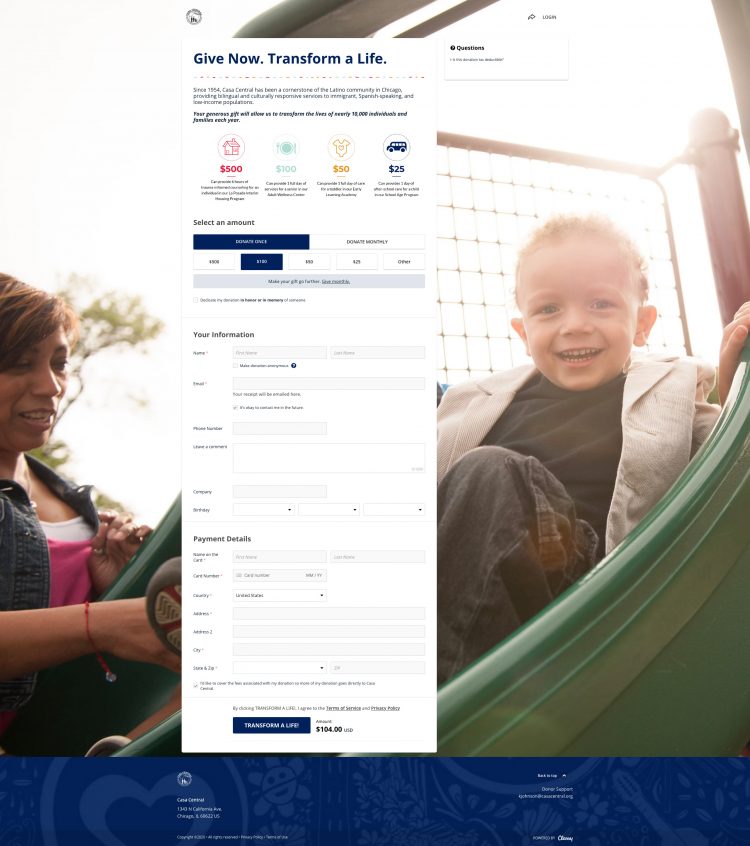
The ROI of Donation Pages
Donation pages powered by the Classy fundraising platform bring in the most average recurring revenue of all campaign types from automated repeat donations. They also have the least amount of canceled recurring contributions in the first year from the original recurring donation compared to all other campaign types.
We went through a pretty thorough search to find the right platform for us, but what really sold us on Classy was the versatility of the donation pages and the design of the user experience for donors.
Crowdfunding
“Our nonprofit needs to gather donations, build a supporter base, and tell our organization’s compelling story in the process.”
A crowdfunding campaign is built for storytelling. With this campaign type, you can inspire support for your cause with a robust narrative that ultimately drives people to donate.
Crowdfunding campaigns are the landing page before someone gets to your donation page. It’s meant to draw people in, teach them about your nonprofit, show the impact their gift will make, and steward them to complete a donation. Nonprofits often use video, rich imagery, and well-written copy to accomplish this.
Crowdfunding’s Value for Community-Based Campaigns
While a crowdfunding campaign works well for story-driven appeals, it’s also ideal for time-bound appeals that fundraise against an optional, public-facing goal. You can’t do this on a donation page. In addition, when you run a crowdfunding campaign that’s bound to a set duration of time, it can create a sense of urgency to donate.
Additionally, when someone donates, you can thank and encourage them in real time on the comment wall of the campaign page. This public-facing engagement opportunity shows supporters that you and your team are grateful for the support.
It also lends an element of social proof to the campaign. With a donation page, you cannot see who’s donated, how many have donated, or gauge any sense of momentum. Here’s a campaign by Water4 that puts all of these best practices to use.
Crowdfunding Classy Campaign Example
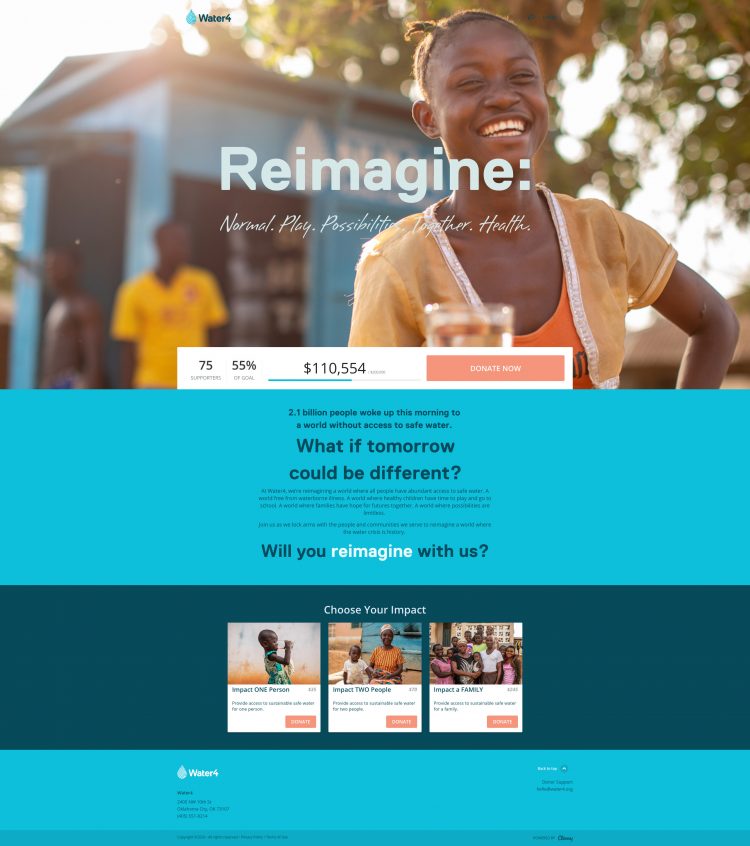
Crowdfunding for Recurring Giving
Donation pages can effectively include a recurring giving option, but you can also use a crowdfunding campaign to build a dedicated recurring giving program. The only things that change are the call to action, which shifts the focus from a one-time donation to a monthly recurring donation, and the timeline. Recurring giving programs are often evergreen. Operation Broken Silence built a recurring giving program in this fashion.
Recurring Giving Crowdfunding Classy Campaign Example
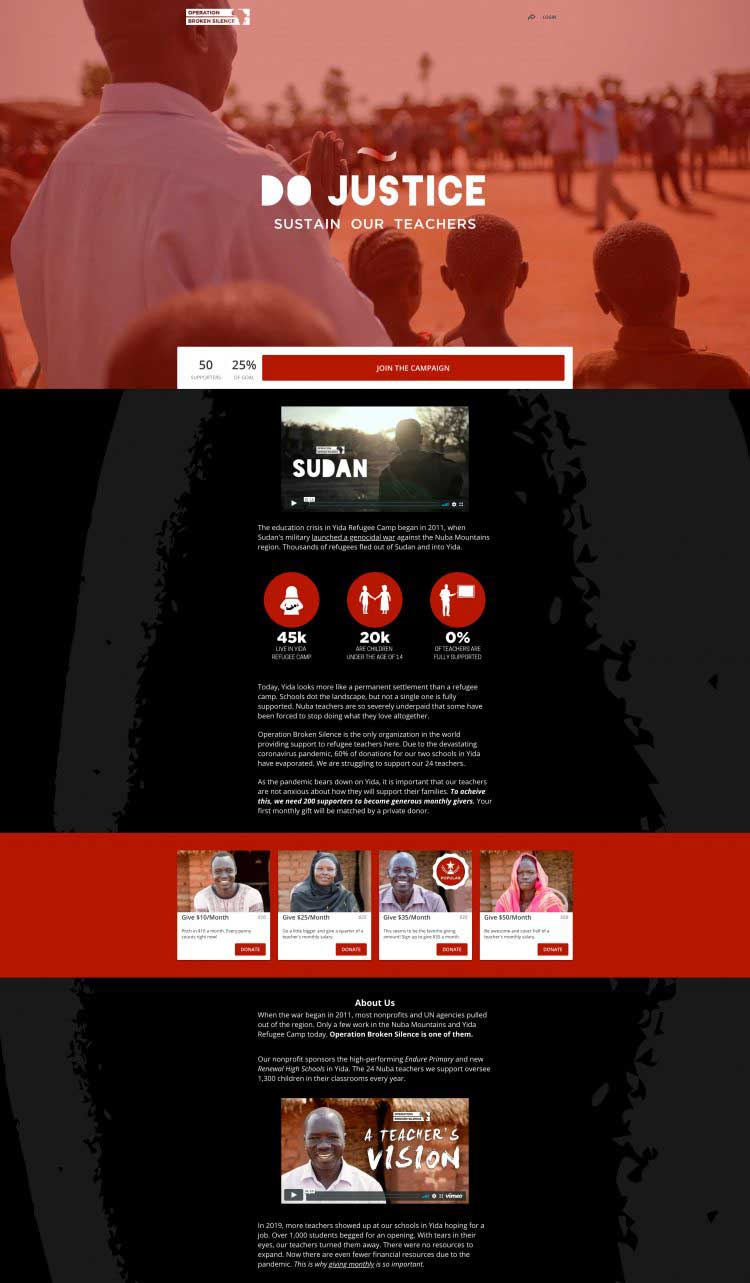
The ROI of Crowdfunding
Crowdfunding campaigns have the highest percentage of donors on mobile devices who are visiting from social media platforms. We also see that crowdfunding campaigns are the second most common way a donor returns to give a second donation.
We have grown our peer-to-peer and crowdfunding efforts considerably on Classy. Not only have we seen fundraising totals increase, but we’ve seen donors deepen their relationships with our organization.
Peer-to-Peer
“We want to empower people to fundraise on our behalf.”
A peer-to-peer fundraising campaign page may look similar to a crowdfunding campaign, but it has a different call to action. Instead of asking someone to donate, a peer-to-peer campaign instead asks them to sign up to fundraise on your behalf.
Some peer-to-peer campaigns will offer both options and invite supporters to donate or sign up to fundraise. That way, people can still give to your cause even if they don’t want to build a personal fundraising page.
Create a Central Hub for Peer-to-Peer Fundraising
Your main campaign page serves as a central hub from which supporters build their personal fundraising pages. Fundraisers will then send out their personal pages to their networks, asking people to donate.
All donations to personal fundraising pages link back to your main campaign page and increase your fundraising progress toward the goal. The true value here lies in that network effect.
As individuals reach out to their friends, families, and coworkers to share their fundraising pages, your nonprofit gets exposed to new audiences that may not have heard about your mission before. Peer-to-peer fundraising can also net your organization higher overall fundraising totals.
That’s because someone who starts a personal fundraising page can often raise more from their network than they can donate out of pocket. Not everyone can donate $100 at once, but many people have 10 friends who can each donate $10. Look at how Volunteers of America built their page.
Peer-to-Peer Classy Campaign Example
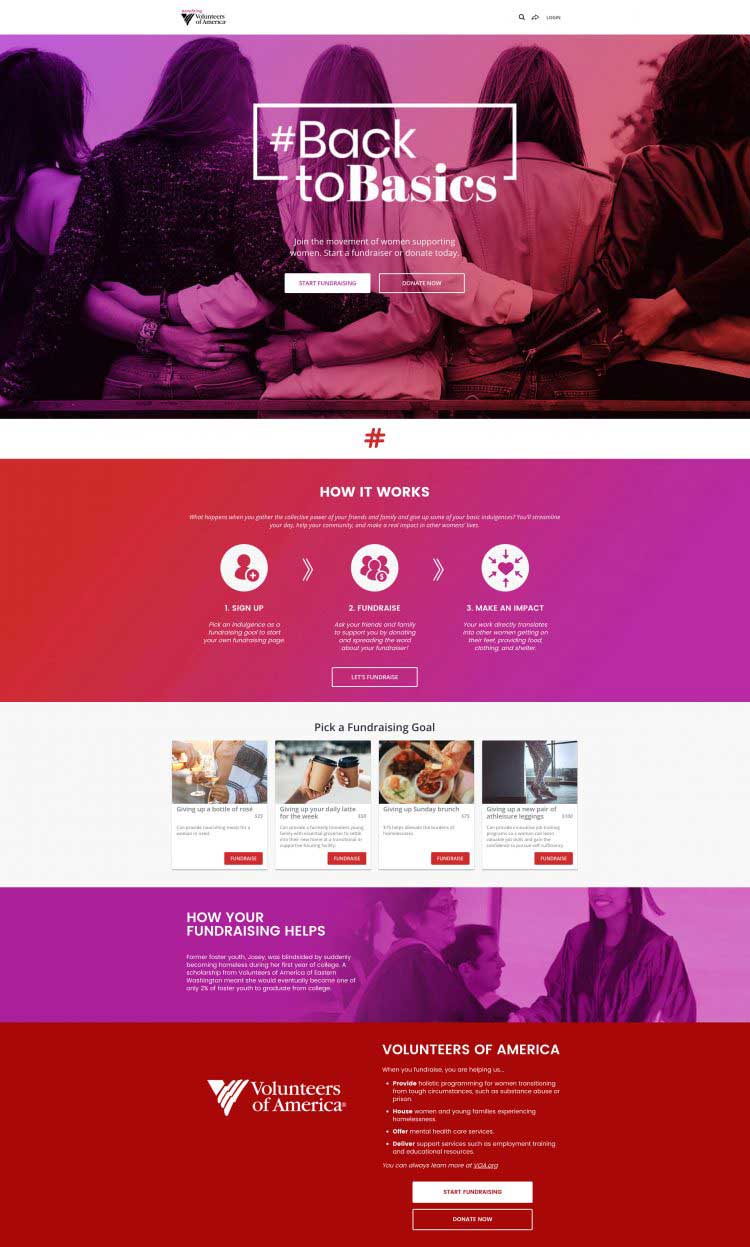
Year-Round Peer-to-Peer Campaigns
While most peer-to-peer fundraising campaigns are time-bound, like most crowdfunding campaigns, you always have the option to leave it on year-round. In these cases, you would call it a year-round peer-to-peer campaign.
Beyond that, you can build your peer-to-peer campaign as a DIY fundraising campaign, which lets supporters fundraise on their own terms and time, like Room to Grow did. Someone can donate their birthday, wedding, athletic event, or another major life milestone.
DIY Peer-to-Peer Classy Campaign Example
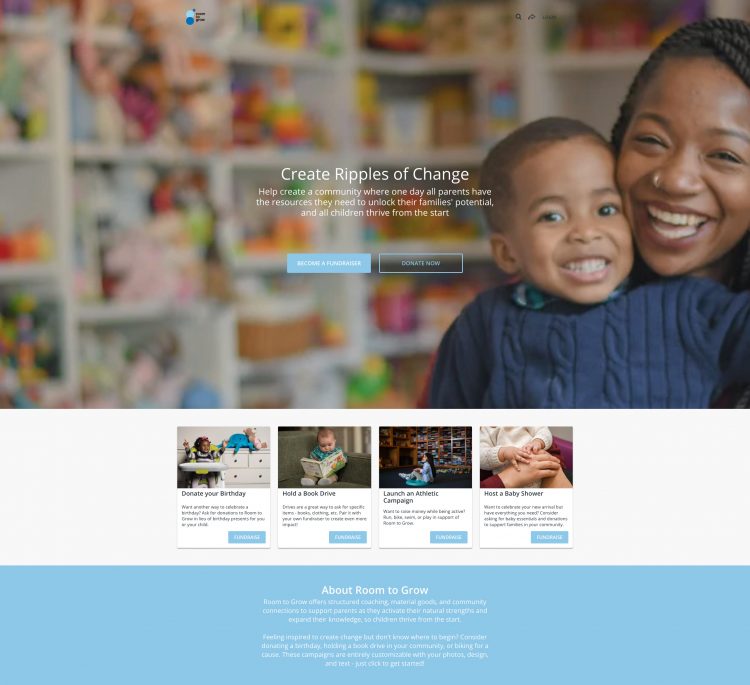
The ROI of Peer-to-Peer
An individual’s fundraising page brings in 20 donors on average, so your campaign could potentially reach 100 donors if even five people participated. We also saw that the average amount raised by each participant’s fundraising page in 2021 increased by 34% on average from 2020.
With Classy’s peer-to-peer fundraising, our community of supporters stepped up to raise critical resources for the most vulnerable in our community when they had nowhere else to turn.
Events
“I want to hold an event that activates my entire community of supporters.”
Classy offers two different ways your nonprofit can tap into the power of events. First, you can choose a ticketed event, which allows you to sell tickets to your event—our online ticket sales for nonprofits feature makes this easier than ever. Second, you can choose registration with fundraising, which combines the peer-to-peer fundraising campaign with a ticketed event campaign. With the addition of Classy Live, these events can now be run virtually or enhanced in-person with mobile features.
Ticketed Event
A ticketed event is what you’ll want to choose for any event that you want to sell admission tickets for, like a gala. You can control the total number of tickets you want to sell, as well as the types of tickets you offer supporters.
You can also create special promo codes to pass out and attract additional attendees. Last, you can include a “Donate” call to action so that anyone who can’t attend your event can still make a donation to support like the High Fives Foundation did.
Ticketed Event Classy Campaign Example
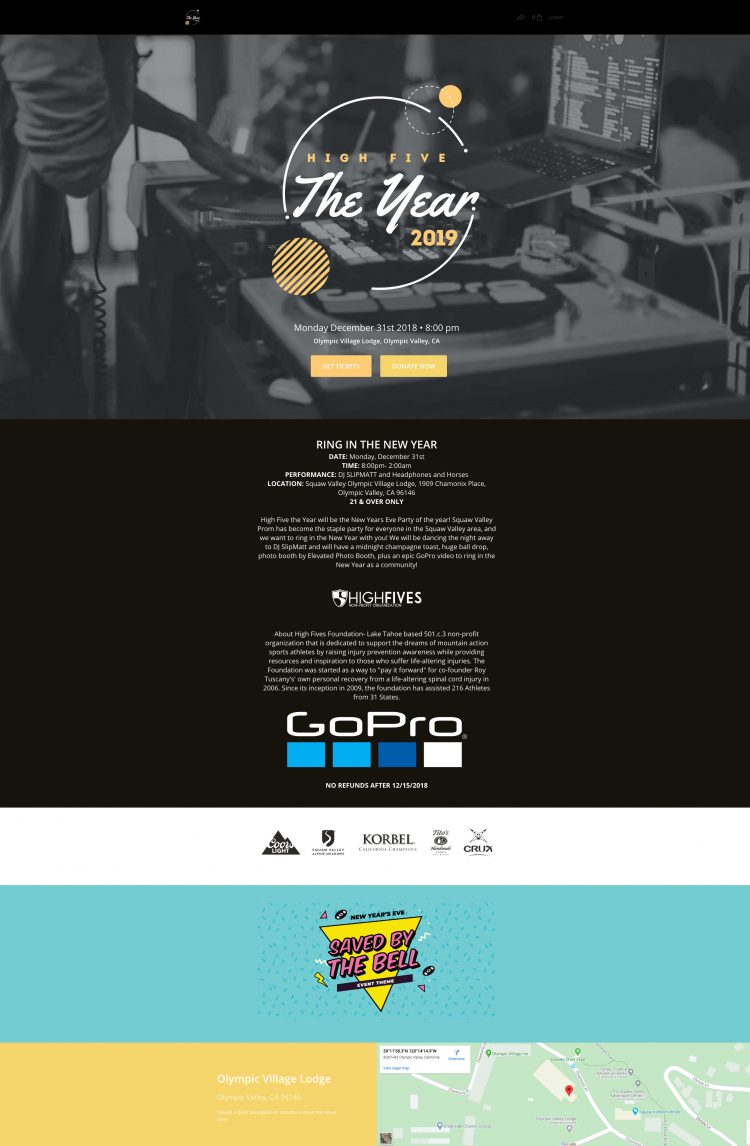
Registration with fundraising is similar to the ticketed events campaign type, but it mixes in an element of peer-to-peer fundraising. Often, nonprofits will use this campaign type for endurance events like 5Ks, marathons, and run/walks.
Participants can still pay for admission to the event, but there’s an option for them to create a personal or team fundraising page as well. Some will also use this peer-to-peer functionality as a gate to entry for the event.
Someone must fundraise a certain dollar amount to guarantee their registration in the event. You can use this example from the Sacramento SPCA to inspire your own campaign.
Registration With Fundraising Classy Campaign Example
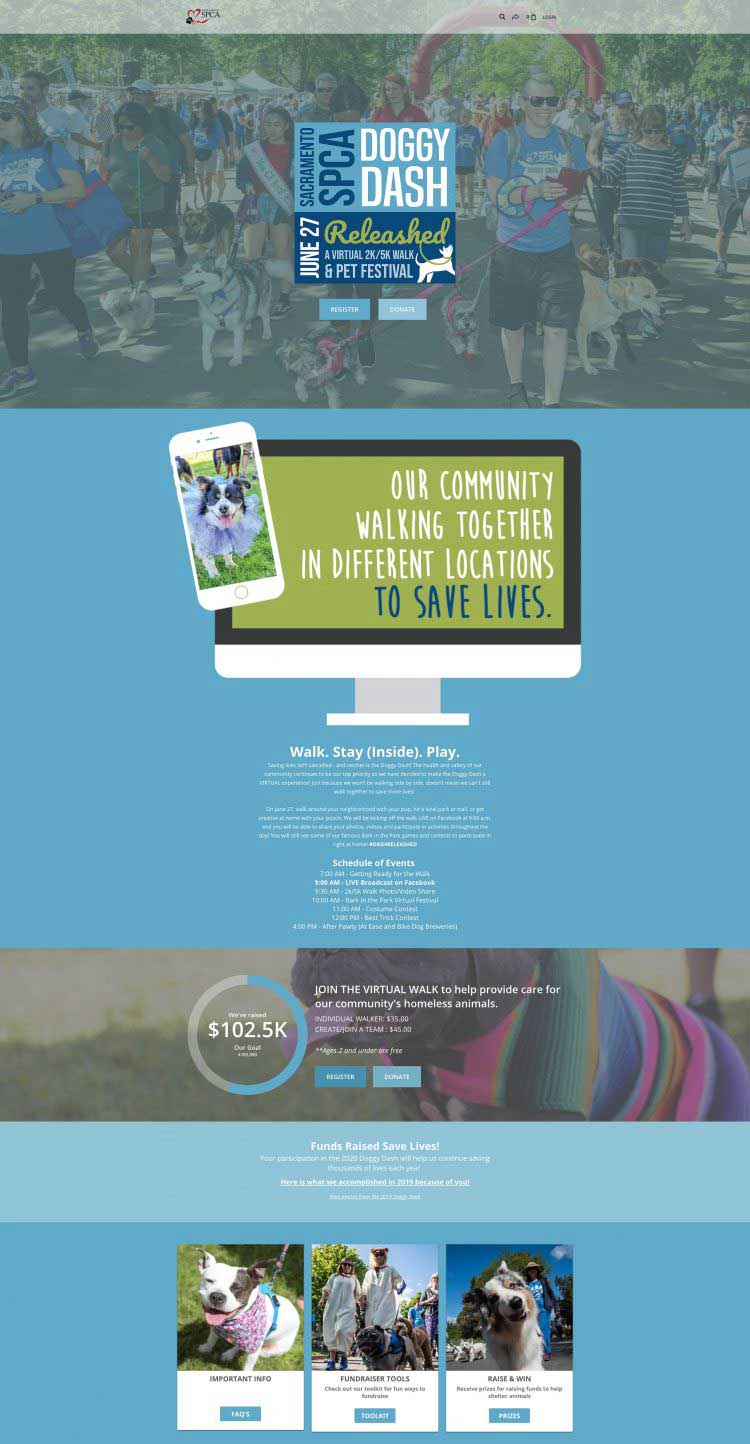
The ROI of Events
Not only are events seeing tremendous year-over-year donation volume growth after the pandemic years of 2020 through 2021, but registration with fundraising events converted at the highest rate of all campaign types. We also see ticketed events bringing in the highest percentage of donations over $1,000.
By offering a wide range of events and campaigns on Classy, we cater to a diverse group of allies with varied interests. We’re always able to find something that fits their tastes, whether it’s a walk, DIY fundraiser, endurance event, or virtual challenge.
What Classy Campaign Type Will You Choose?
No matter which Classy campaign type you choose, it’s helpful to view your campaign as an iterative work-in-progress that can always be improved. One of the biggest keys to success is to have a defined focus before you start that drives a strong first version that can be improved upon later.
When you understand the call to action and are confident in the campaign type you need, you’ve done the hard part. That way, you won’t spend hours designing a page only to realize you’ve chosen the wrong type.
For more ROI related to specific campaign types on Classy, visit The State of Modern Philanthropy report. If you’re interested in learning more about how Classy can power your online fundraising efforts, please reach out to us. Good luck!
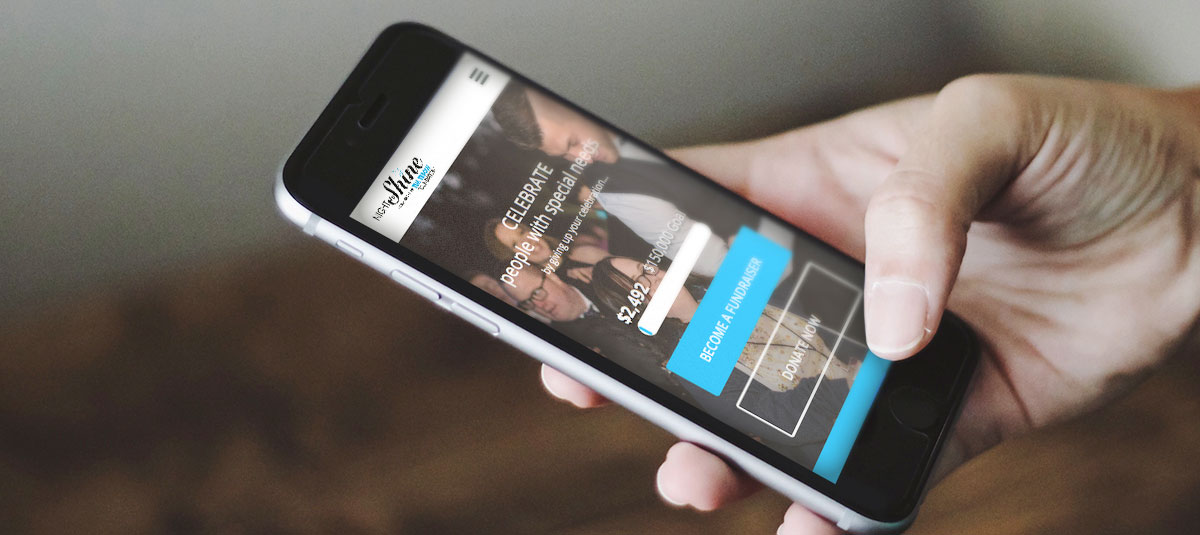
We Want to Hear From You

